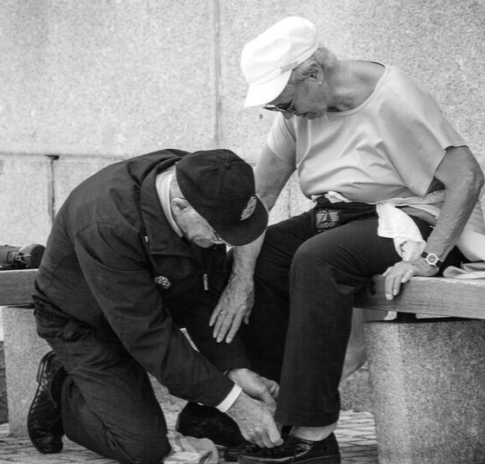Caring for a loved one with Alzheimer’s is a tough job. The stress, demand, and constant worry can take a heavy toll on the family caregiver, so much that they often don’t take good care of themselves. It can also be an emotional journey as the family member providing care watches their loved one’s memories disappear and their daily skills decline. This inevitably will lead to caregiver burnout.
Caregiving for someone with Alzheimer’s or another form of dementia can be all-consuming. Family caregivers face many responsibilities and it is easy to become overwhelmed. The best advice our caregivers at FirstLight Home Care have is to understand and implement self-care as part of your caregiving role and use the resources you may have at your disposal to get the support you need.
Here are 8 tips to help you avoid caregiver burnout when dealing with Alzheimer’s:
- Learn about the disease. Become an educated caregiver. Learn about the disease and ask your loved one’s doctors as many questions as possible to better understand Alzheimer’s, how it will change over time, and what impact it will have on you and the care you’re providing.
- Set realistic caring expectations. You will not be able to do everything for the loved one in your care. Define what you can realistically do and then find other people or outside resources to help with the other caregiving duties in which you need support.
- Know what community resources are available and use them. Most communities have adult day programs, in-home care support or assistance, meal delivery services and/or caregiver support groups to help you.
- Pay attention to your stress levels. If you experience signs of stress on a regular basis, consult your doctor. Other signs of burnout can include extreme fatigue, lack of energy, anxiety, depression, social withdrawal or lack of interest in the things you used to enjoy. Ignoring these symptoms can cause your physical and mental health to decline.
- Ask for help. It’s okay to ask friends, family or professional caregivers to help with some of the caregiving tasks. It takes a village to care for someone with Alzheimer’s.
- Take breaks. Time for yourself is very important. Make respite care a priority so you can spend time doing something you enjoy. Respite care provides caregivers with a temporary rest from caregiving, while the person with Alzheimer’s disease continues to receive care in a safe environment. Learn more about FirstLight Home Care’s Respite Care services.
- Get moving. Physical activity can help reduce stress and improve your overall well-being. Even 10 minutes of exercise a day can help.
- Get your legal and financial situation in order. Organize your loved one’s legal and financial plans to ensure everything is in one place and in order. If you are unsure about how to complete legal documents or make financial plans, you may want to seek assistance from an attorney specializing in elder law, a financial advisor who is familiar with an elder or long-term care planning, or both.
Are you caring for someone living with Alzheimer’s? What advice would you give a family caregiver in your situation? Share your comments below or join our conversation on our Facebook page.
We are proud to CHAMPION the family caregiver, offering empathy, advice, and support for those who provide countless hours of care to their loved ones. At FirstLight Home Care we want to provide a helping hand, relieve some of the stress that comes with caregiving and give you back a few hours in your overwhelmingly busy day.
Read other FirstLight Home Care blog articles that have been popular among our readers:
5 Helpful Tips for First-Time Caregivers
